Frequently Asked Questions
General FAQ’s
1When to Consider Spinal Surgery?
The decision to undergo cervical spine or scoliosis surgery is never one taken lightly. Dr. Kim understands this and will only recommend procedures if he believes they are required to improve his patients' quality of life. That is why he’d like to provide the below examples of when it would be beneficial to consider these services:
Traditional therapies have offered no relief for your symptoms.
Spinal injury or condition has led to compression of the nerves.
Any spinal condition that has adversely affected your quality of life.
2Why should I visit Dr. Kim for surgery?
Spinal surgeries are among the most delicate medical procedures a person can undergo. Dr. Kim’s philosophy on surgical treatments are based on precision and individualized medicine. Whether a minimally invasive or traditional approach is utilized, it will be customized dependent on the patient’s symptoms and risk factors in order to optimize outcomes. Dr. Kim has spent years specializing in cervical spine and scoliosis surgery, so you should trust you’re in excellent hands. He has performed thousands of operations, has authored more than 200 peer scientific articles and 35 chapters for medical textbooks. Dr. Kim has lectured and taught spine surgeons from around the world.
3How do I handle billing and insurance?
In an ideal world, medical billing would be an easy process for all involved. We know when you come to visit Dr. Kim, your main focus is on making a full recovery. That is why our staff promises to do everything in our power to make the billing process as simple as possible. We accept most major forms of insurances and will do our best to accommodate out-of-network patients.
Pre-Op FAQs
1When is the best time to have spine surgery?
Regardless of the time of year, patients dealing with cervical spine or scoliosis problems should not hesitate to consult with Dr. Kim to learn when spinal surgery would be beneficial. Dr. Kim typically recommends surgery when there has been a significant effect on a patient’s quality of life due to their spinal ailments, if the patient has failed all conservative measures for management, and/or if there is impending paralysis or neurologic compromise.
2Should I quit smoking before the surgery?
Smoking is an unhealthy habit that we recommend patients consider stopping, regardless of if surgery is required. However, if spinal surgery is in your future, it is in your best interest to quit for a few months leading up to the procedure. Regular nicotine users are at an increased risk of dealing with complications following surgery, such as infections or slowed bone tissue regeneration.
3How do I handle my current medications?
If you’re currently on medication, you must indicate this to Dr. Kim’s staff before the surgery. Some medicines can interfere with the operation, such as causing bleeding or interfering with anesthesia. Even over-the-counter medication usage needs to be discussed with our team. We’ll let each patient know how they should adjust their medication schedule to help keep them safe.
4What other things should I consider?
Advanced planning will help the recovery process from spinal surgery as easy as possible. It would be best if you considered having someone at your home for a brief period following your surgery, as after you are released from the hospital, you will still be in the phase of recovery. Additionally, make sure that if you have an in-person appointment, you have someone who can drive you to and from our office. If appropriate, Dr. Kim’s staff of social workers can coordinate appropriate arrangements when you are in the hospital with regards to home care, nursing, and other support.
Surgical FAQ’s
1How is Dr. Kim different than other surgeons?
Unlike other spine surgeons who believe in minimally invasive or traditional approaches for all issues related to the spine, Dr. Kim’s approach is not as dogmatic. Dr. Kim does not believe in using the same approach for every type of spinal ailment. Whether a minimally invasive approach or traditional approach, he will take into consideration your condition, past medical history, your functional status, and your hobbies and interest prior to making a specific recommendation. His main interest is to maximize your outcome with the shortest recovery time possible.
2What to expect?
Expectations are based on the type of surgery necessary. More information can be find in our post-operative information packets, which are tailored to the operation you will be undergoing
3How long will I need to remain in the hospital?
Some operations are same-day discharges, while some patients may need to stay a few days. Generally, nurses and doctors want you to walk, eat, and go to the bathroom before you are allowed to go home.
Post-Op FAQs
1When will my current symptoms be resolved?
In many cases, a majority, if not all of your symptoms, should improve immediately following the procedure. However, symptoms may take a few weeks to months to improve, due to post-operative inflammation.
2How long will my surgery-related symptoms last?
The amount of time patients deal with pain and other issues directly linked to the surgery performed will vary depending on the severity of the operation and their overall health level. Some procedures take as little as three weeks for patients to make a full recovery. Others may require months of rehabilitation for your condition to return to normal. The recovery timeline will be discussed at length with Dr. Kim before the operation, so you will not need to worry.
3Will I face limitations following my surgery?
Unfortunately, the answer is likely yes. However, this will all depend on what is being done during the procedure. Dr. Kim will tell some patients that they should not perform any bending, lifting, or twisting right after surgery. However, this limitation period may last a few months for patients who undergo surgery to stabilize the spine by implanting medical instrumentation. Again, the specifics will be discussed in-depth with Dr. Kim long before general anesthesia is administered.
4How is my pain medication handled?
This is dependent on the severity of the surgery and the individual patient’s pain tolerance. In some cases, we will recommend over-the-counter medications such as Advil or Tylenol to help the pain subside. For patients who need prescription-strength medicines, we try to limit the period to 2-3 weeks to avoid addiction-related complications, although this too can vary.
Out Of Towners FAQs
1What should I do if I expect there is an issue?
At any point that you suspect this is an issue, you should reach out to Dr. Kim’s staff, and we will do our best to get back to you within 24 hours. If there is an urgent issue, and you cannot reach our office, we always recommend going to your local Emergency Room.
2Should I work with a local specialist once I return home?
It will only be beneficial to patients if they have several eyes on them during the recovery. While by no means will Dr. Kim vanish from the recovery process once you return home, it’s essential to have ready access to specialists in your area. Always one to take a collaborative approach, Dr. Kim will find time to communicate with your doctor to determine what is best for you.
3Can I receive post-op medical documentation to present to my local specialist?
Yes, our team will make sure you receive all pertinent medical documentation before your first appointment prior to your surgery, so your local specialist has a full idea of the scope of the procedure.
4Will I need to return for check-ups done specifically by Dr. Kim?
Dr. Kim and our staff will continue to be invested in your recovery process long after the final stitch has been placed following your surgery. This means that it will likely be in your best interest to schedule future appointments following the procedure. Our team will let you know what we believe the best timing of this schedule would be and work to make any necessary accommodations with you.


